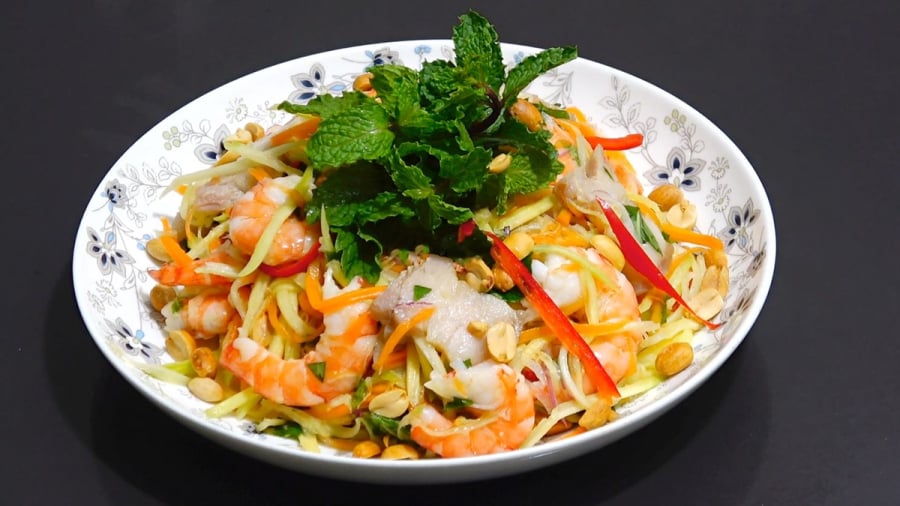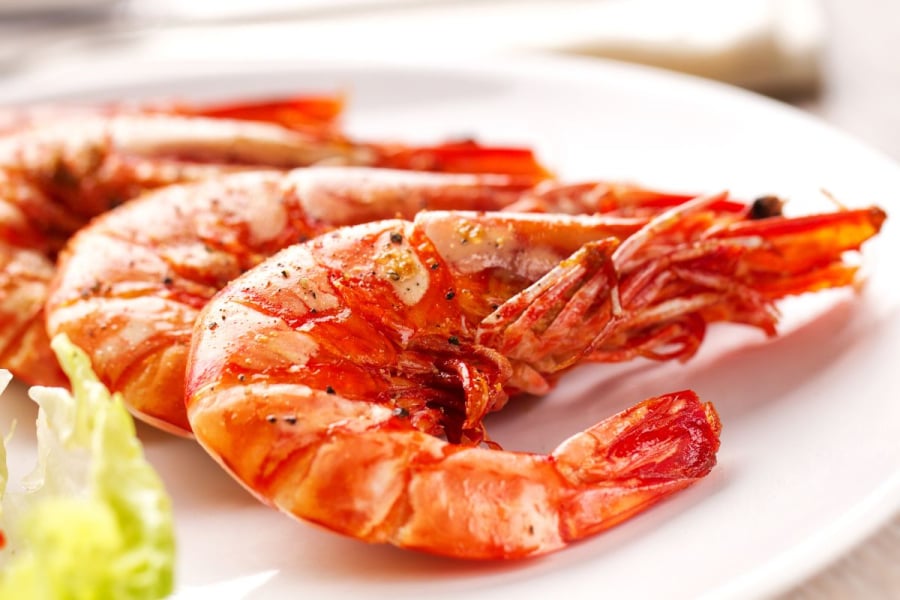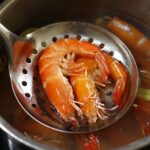Do Not Remove the Black Vein From Shrimp
The black vein on the shrimp’s back is the gut, which contains waste and may harbor bacteria or heavy metals from the shrimp’s environment. Consuming shrimp without removing the black vein can be harmful to your digestive system.
Precaution: Use a knife to make a light slit along the shrimp’s back and gently pull out the black vein before cooking. Rinse the shrimp after removing the vein to get rid of any residual dirt.
Consuming Raw or Undercooked Shrimp
Raw or undercooked shrimp may contain parasites or bacteria such as Vibrio parahaemolyticus, which can lead to food poisoning or gastrointestinal infections.
Precaution: Always cook shrimp at a minimum temperature of 70°C to eliminate bacteria and parasites. Avoid consuming raw shrimp, as in shrimp salads, unless the shrimp has been properly handled and sanitized.

Pairing Shrimp With Incompatible Foods
Certain foods, when combined with shrimp, can cause digestive issues or reduce their nutritional value:
Shrimp and vitamin C-rich foods: Shrimp naturally contains arsenic (in a harmless form), but when paired with vitamin C (such as oranges or lemons), arsenic can transform into a toxic form.
Shrimp and beer/alcohol: Drinking beer or alcohol while eating shrimp may increase the risk of uric acid buildup, leading to joint pain or gout.
Precaution: Refrain from consuming shrimp with vitamin C-rich fruits in the same meal. Avoid drinking alcohol when eating shrimp, especially if you have a history of gout.
Overconsuming Shrimp
Shrimp is high in cholesterol and purines, which can elevate blood cholesterol levels or exacerbate gout if consumed in excess.
Precaution: It is advisable to consume shrimp only 2-3 times per week, with a serving size of approximately 100-150g for adults. Individuals with medical conditions such as gout, hypertension, or high cholesterol should consult their doctors before including shrimp in their diet.
Ignoring Shrimp Allergies
Shrimp is among the most common allergenic seafood, with potential symptoms ranging from itching and hives to difficulty breathing or anaphylaxis.
Precaution: If you have a history of seafood allergies, exercise caution before consuming shrimp. Start by consuming a small amount and monitoring your body’s reaction. If any allergic symptoms occur, stop consuming shrimp immediately and seek medical attention.

Preparing Shrimp With Excess Oil or Salt
Frying shrimp in excessive oil or adding too much salt can increase the risk of obesity, hypertension, and cardiovascular diseases.
Precaution: Opt for healthier cooking methods such as steaming, boiling, or grilling. Minimize the use of salt and spices that are high in sodium.
“A Squeeze of Lemon: The Simple Hack to Keep Rice Fresh in Hot and Humid Climates”
In hot and humid climates, cooked rice can quickly spoil if left at room temperature. A simple trick to prevent this is to add a slice of lemon while cooking the rice. This folk method not only has scientific backing but also enhances the aroma and flavor of the rice, while extending its shelf life.





































